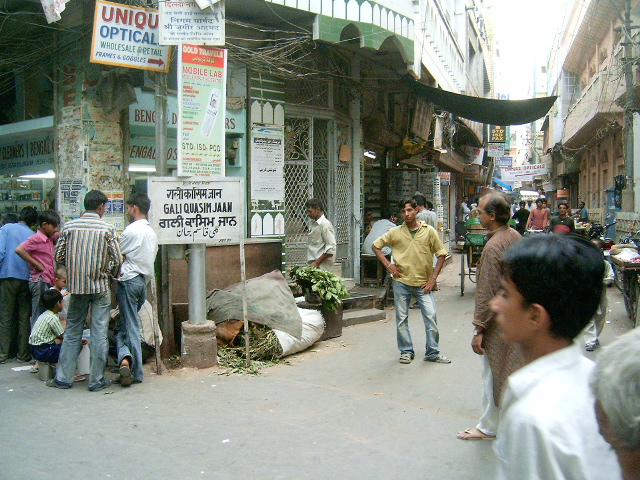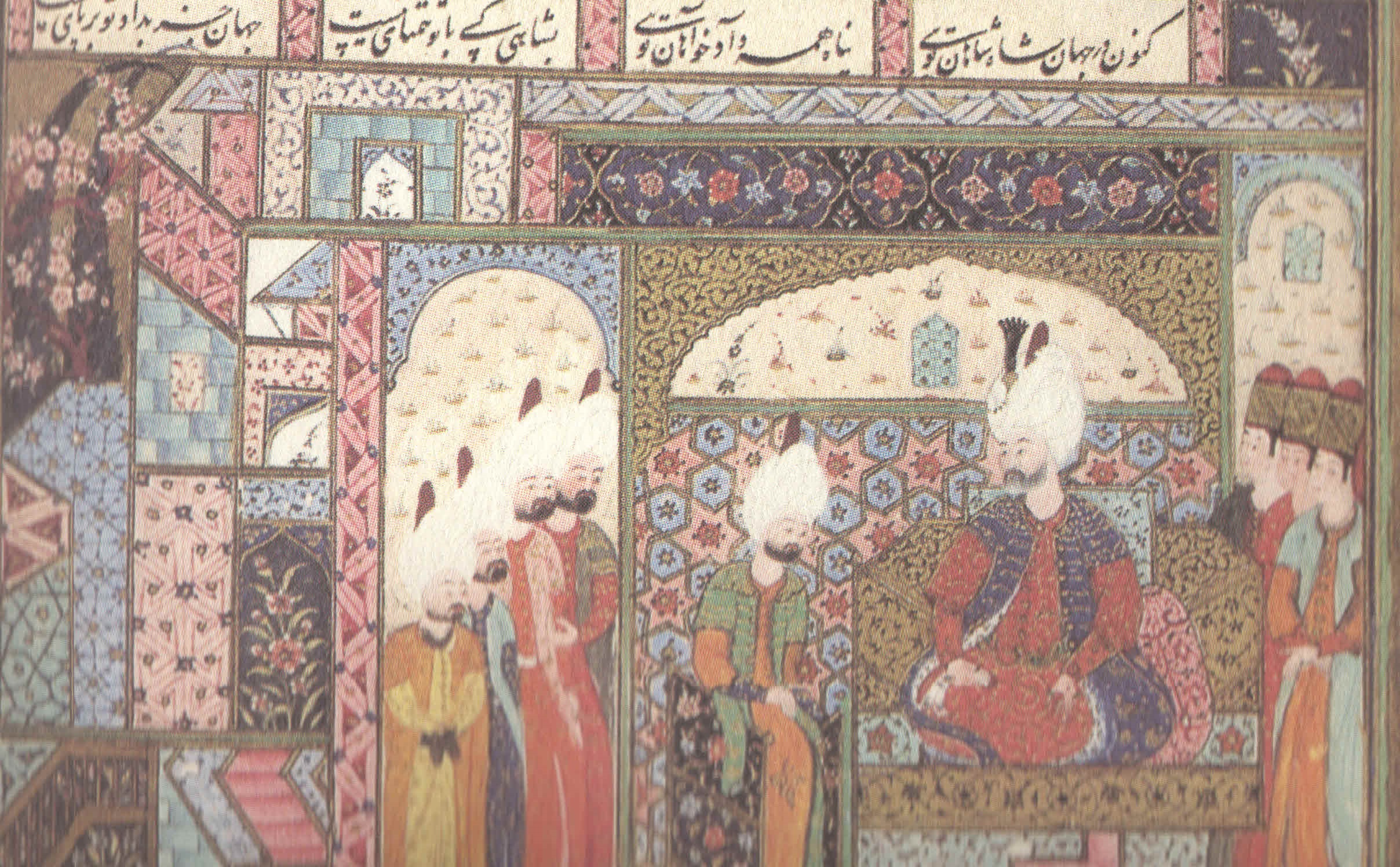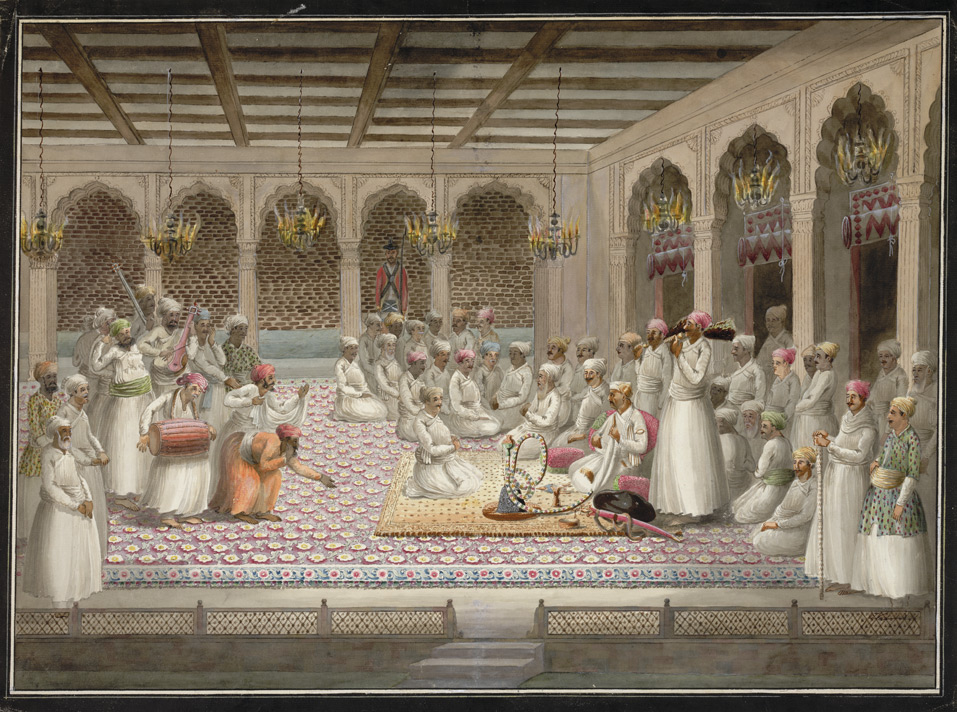|
Amin Ud-din Ahmad Khan
Amin ud-din Ahmad Khan (23 March 1911 – 12 June 1983) was the last ruling Nawab of princely state of Loharu, reigning from 1926 to 1947. Born on 23 March 1911 in Delhi, he studied at Aitchison College, Lahore, later, Member of the Chamber of Princes, and briefly served the Indian Army and saw action during the Liberation of Goa in 1961 . He was a leader of the regional Indian National Congress party, and became a member of the Legislative Assembly of Rajasthan ( MLA), and subsequently the 'Minister Public Works Department', Government of Rajasthan from 1967 to 1976. He was appointed the 2nd governor of Himachal Pradesh (1977–1981) and 11th governor of Punjab (1981–1982). He donated the famous and valuable library collection of his family to the Raza Library in Rampur. He died at New Delhi on 12 June 1983, aged 72. Personal life He had one daughter from his wife, ''Shahzadi Sultan Begum'', * Mah Bano Begum (Born 1934): married to H. E. Dr. S. M. Koreshi, Ambass ... [...More Info...] [...Related Items...] OR: [Wikipedia] [Google] [Baidu] |
Nawab
Nawab (Balochi language, Balochi: نواب; ar, نواب; bn, নবাব/নওয়াব; hi, नवाब; Punjabi language, Punjabi : ਨਵਾਬ; Persian language, Persian, Punjabi language, Punjabi , Sindhi language, Sindhi, Urdu: ), also spelled Nawaab, Navaab, Navab, Nowab, Nabob, Nawaabshah, Nawabshah or Nobab, is a Royal title indicating a sovereign ruler, often of a South Asian state, in many ways comparable to the western title of Prince. The relationship of a Nawab to the Emperor of India has been compared to that of the Kingdom of Saxony, Kings of Saxony to the German Emperor. In earlier times the title was ratified and bestowed by the reigning Mughal emperor to semi-autonomous Muslim rulers of subdivisions or princely states in the Indian subcontinent loyal to the Mughal Empire, for example the Nawabs of Bengal. The title is common among Muslim rulers of South Asia as an equivalent to the title Maharaja. "Nawab" usually refers to males and literally mea ... [...More Info...] [...Related Items...] OR: [Wikipedia] [Google] [Baidu] |
His Highness
Highness (abbreviation HH, oral address Your Highness) is a formal style (manner of address), style used to address (in grammatical person, second person) or refer to (in grammatical person, third person) certain members of a reigning or formerly reigning dynasty. It is typically used with a possessive adjective: "His Highness", "Her Highness" (HH), "Their Highnesses", etc. Although often combined with other adjectives honorific, of honour indicating rank, such as "Imperial", "Royal" or "Serene", it may be used alone. ''Highness'' is, both literally and figuratively, the quality of being lofty or above. It is used as a term to evoke dignity or honour, and to acknowledge the exalted rank of the person so described. History in Europe Abstract styles arose in profusion in the Roman Empire, especially in the Byzantine Empire, Byzantine. Styles were attached to various offices at court or in the state. In the early Middle Ages such styles, couched in the second or third person, were ... [...More Info...] [...Related Items...] OR: [Wikipedia] [Google] [Baidu] |
Captain (land And Air)
The army rank of captain (from the French ) is a commissioned officer rank historically corresponding to the command of a company of soldiers. The rank is also used by some air forces and marine forces. Today, a captain is typically either the commander or second-in-command of a company or artillery battery (or United States Army cavalry troop or Commonwealth squadron). In the Chinese People's Liberation Army, a captain may also command a company, or be the second-in-command of a battalion. In some militaries, such as United States Army and Air Force and the British Army, captain is the entry-level rank for officer candidates possessing a professional degree, namely, most medical professionals (doctors, pharmacists, dentists) and lawyers. In the U.S. Army, lawyers who are not already officers at captain rank or above enter as lieutenants during training, and are promoted to the rank of captain after completion of their training if they are in the active component, or after a ... [...More Info...] [...Related Items...] OR: [Wikipedia] [Google] [Baidu] |
Lieutenant
A lieutenant ( , ; abbreviated Lt., Lt, LT, Lieut and similar) is a commissioned officer rank in the armed forces of many nations. The meaning of lieutenant differs in different militaries (see comparative military ranks), but it is often subdivided into senior (first lieutenant) and junior (second lieutenant and even third lieutenant) ranks. In navies, it is often equivalent to the army rank of captain; it may also indicate a particular post rather than a rank. The rank is also used in fire services, emergency medical services, security services and police forces. Lieutenant may also appear as part of a title used in various other organisations with a codified command structure. It often designates someone who is " second-in-command", and as such, may precede the name of the rank directly above it. For example, a "lieutenant master" is likely to be second-in-command to the "master" in an organisation using both ranks. Political uses include lieutenant governor in various g ... [...More Info...] [...Related Items...] OR: [Wikipedia] [Google] [Baidu] |
Second Lieutenant
Second lieutenant is a junior commissioned officer military rank in many armed forces, comparable to NATO OF-1 rank. Australia The rank of second lieutenant existed in the military forces of the Australian colonies and Australian Army until 1986. In the colonial forces, which closely followed the practices of the British military, the rank of second lieutenant began to replace ranks such as ensign and cornet from 1871. New appointments to the rank of second lieutenant ceased in the regular army in 1986. Immediately prior to this change, the rank had been effectively reserved for new graduates from the Officer Cadet School, Portsea which closed in 1985. (Graduates of the Australian Defence Force Academy (ADFA) and the Royal Military College, Duntroon (RMC-D) are commissioned as lieutenants.). The rank of second lieutenant is only appointed to officers in special appointments such as training institutions, university regiments and while under probation during training. Trai ... [...More Info...] [...Related Items...] OR: [Wikipedia] [Google] [Baidu] |
Nawab Of Loharu
Loharu State was one of the princely states of India during the period of the British Raj. It was part of the Punjab States Agency and was a nine-gun salute state. Loharu State encompassed an area of , and was situated in the south-east corner of the undivided Punjab province, between the district of Hissar and the Rajputana Agency. In 1901, the state had a population of 15,229 people, of whom 2,175 resided in the town of Loharu. From 1803 to 1835, the territory of Loharu State also included an Ferozepur Jhirka enclave within the area directly administered by the British raj, Outer limits of the state were defined by the peripheral towns of Loharu, Bahal, Isharwal, Kairu, Jui Khurd and Badhra. The ''haveli'' of 'Nawab of Loharu', known as ''Mahal Sara'', lies in Gali Qasim Jan in Ballimaran, where his son-in-law, noted poet Mirza Ghalib stayed for a few years, whose own Ghalib ki Haveli lies a few yard away. Now the '' gali'', which houses the Mahal Sara, is known as ''Kothi ... [...More Info...] [...Related Items...] OR: [Wikipedia] [Google] [Baidu] |
Mirza (noble)
Mirza ( or ; fa, میرزا) is a name of Persian origin. It is used as a surname or prefix to identify patriarchal lineage. It is a historical royal and noble title, denoting the rank of a royal prince, high nobleman, distinguished military commander, or a scholar. Specifically, it was used as a title by (and today signifies patriarchal lineage to) the various Persian Empires, the Nogai Horde, Shirvanshahs and Circassians of the European Caucasus, as well as the Muslim Rajputs and mainly the Mughals / Moguls, both of the Indian Subcontinent. It was also a title bestowed upon members of the highest aristocracies in Tatar states, such as the Khanates of Kazan and Astrakhan Astrakhan ( rus, Астрахань, p=ˈastrəxənʲ) is the largest city and administrative centre of Astrakhan Oblast in Southern Russia. The city lies on two banks of the Volga, in the upper part of the Volga Delta, on eleven islands of the .... Etymology The original title ''Mīrzā'' or ''Mer ... [...More Info...] [...Related Items...] OR: [Wikipedia] [Google] [Baidu] |
Excellency
Excellency is an honorific style given to certain high-level officers of a sovereign state, officials of an international organization, or members of an aristocracy. Once entitled to the title "Excellency", the holder usually retains the right to that courtesy throughout their lifetime, although in some cases the title is attached to a particular office, and is held only for the duration of that office. Generally people addressed as ''Excellency'' are heads of state, heads of government, governors, ambassadors, Roman Catholic bishops and high-ranking ecclesiastics and others holding equivalent rank (e.g., heads of international organizations). Members of royal families generally have distinct addresses (Majesty, Highness, etc.) It is sometimes misinterpreted as a title of office in itself, but in fact is an honorific that precedes various titles (such as Mr. President, and so on), both in speech and in writing. In reference to such an official, it takes the form ''His'' or ... [...More Info...] [...Related Items...] OR: [Wikipedia] [Google] [Baidu] |
Nawabzada
Nawab ( Balochi: نواب; ar, نواب; bn, নবাব/নওয়াব; hi, नवाब; Punjabi : ਨਵਾਬ; Persian, Punjabi , Sindhi, Urdu: ), also spelled Nawaab, Navaab, Navab, Nowab, Nabob, Nawaabshah, Nawabshah or Nobab, is a Royal title indicating a sovereign ruler, often of a South Asian state, in many ways comparable to the western title of Prince. The relationship of a Nawab to the Emperor of India has been compared to that of the Kings of Saxony to the German Emperor. In earlier times the title was ratified and bestowed by the reigning Mughal emperor to semi-autonomous Muslim rulers of subdivisions or princely states in the Indian subcontinent loyal to the Mughal Empire, for example the Nawabs of Bengal. The title is common among Muslim rulers of South Asia as an equivalent to the title Maharaja. "Nawab" usually refers to males and literally means ''Viceroy''; the female equivalent is "Begum" or "''Nawab Begum''". The primary duty of a Nawab was ... [...More Info...] [...Related Items...] OR: [Wikipedia] [Google] [Baidu] |
13th Lok Sabha
The 13th Lok Sabha (10 October 1999 – 6 February 2004) is the thirteenth session of the Lok Sabha (House of the People, or lower house in the Parliament of India). It was convened after 1999 Indian general election held during September–October 1999. This majority group in the Lok Sabha during this period was the National Democratic Alliance, a nationalist group led by the Bharatiya Janata Party, which won 270 seats, 16 more than 12th Lok Sabha. The NDA, under the leadership of Atal Bihari Vajpayee completed its term until the next general elections of May 2004 for the next 14th Lok Sabha. This was the first non-INC government to complete the full term. Four sitting members from Rajya Sabha, the Upper House of Indian Parliament, were elected to 13th Lok Sabha after the 1999 Indian general election. Important members * Speaker: ** G. M. C. Balayogi from 22 October 1999 to 3 March 2002 ** Manohar Joshi from 10 May 2002 to 2 June 2004 * Deputy Speaker: ** P M Sayeed fro ... [...More Info...] [...Related Items...] OR: [Wikipedia] [Google] [Baidu] |
11th Lok Sabha
General elections were held in India in 1996 Indian general election, April–May 1996 to elect the members of the 11th Lok Sabha. The result of the election was a hung parliament, which would see three Prime Ministers in two years and force the country back to the polls in 1998. Atal Bihari Vajpayee of Bharatiya Janata Party, the single largest party to win this election, winning 67 more seats than previous 10th Lok Sabha, formed the government which lasted for only 13 days. The United Front was created and got support from 332 members out of the 545 seats in the Lok Sabha, resulting in H. D. Deve Gowda from the Janata Dal being the 11th Prime Minister of India. Later I. K. Gujral, took the command of the country but when Lalu Prasad Yadav left Janta Dal and formed his own party, 11th Lok Sabha was dissolved to get a fresh mandate from the voters for next 12th Lok Sabha in the 1998 Indian general election. The Lok Sabha (House of the People) is the lower house in the Parliam ... [...More Info...] [...Related Items...] OR: [Wikipedia] [Google] [Baidu] |





